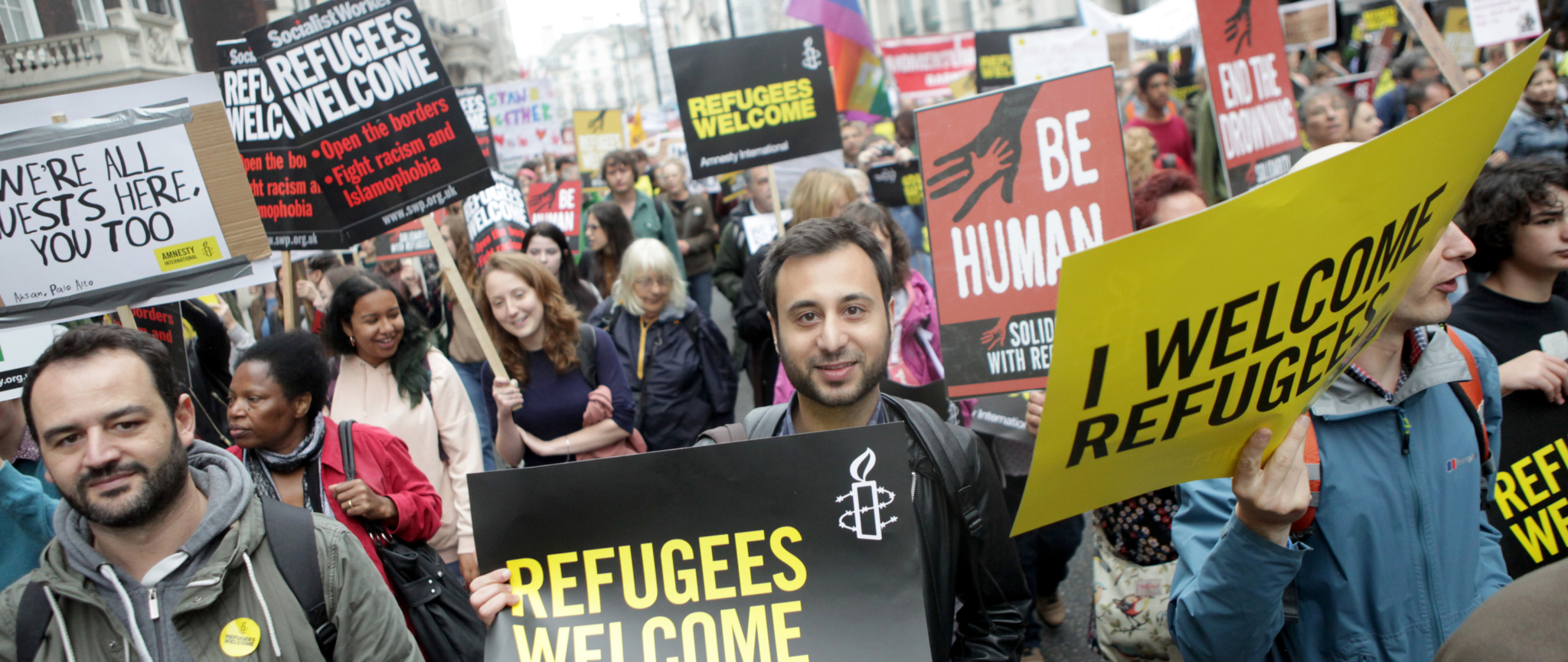Since Russia’s invasion of Ukraine, over 5 million people have made the agonizing choice to protect themselves and their families by leaving Ukraine to seek safety in other countries. In times of danger, people usually take the quickest and most accessible routes to safety, which may lead them to neighbouring countries. While these countries have the obligation to guarantee prompt access to their territory and provide for immediate humanitarian needs, support and solidarity from other countries is required to meet longer-term protection and assistance needs and to provide for durable solutions.
In response to the crisis, Canada created an authorization for emergency travel which gives Ukrainian nationals a fee-exempt temporary visitor visa. This program enables an unlimited number of Ukrainians to come to Canada and obtain work and study permits. Amnesty International supports the government’s decision to dispense with typical visa requirements to make it easier for a larger number of people to seek safety in Canada quickly. The government has also committed to prioritizing family sponsorship applications. This approach recognizes the dire situation Ukrainians face and ensures access to protection without delay. It recognizes that Ukrainians, like all refugees, are deserving of empathy and should be welcomed with open arms, as well as the role Canada can play in supporting people fleeing danger.
However, we are deeply concerned by the federal government’s discriminatory decision to limit the temporary visa program to Ukrainian nationals and their family members. Despite fleeing the same conflict, third-country nationals fleeing Ukraine are not eligible for the visa program. We call on the government to amend its program so that all people fleeing Ukraine can access protection without discrimination. We also note that war is not experienced equally, and that its impacts are felt most acutely by people who are already marginalized. Canada must account for the intersecting vulnerabilities that racialized people, people with disabilities, young people, older adults, LGBTI people, and women, trans and gender diverse people face, and should ensure that its program responds to their needs.
Canada’s response to the crisis in Ukraine shows that it can receive large numbers of people seeking safety over a short period of time, something it has failed to do in response to other crises. For example, eight months after Canada announced plans to resettle 40,000 Afghans, fewer than 12,000 Afghans have arrived in Canada. While the government notes that the situations in Afghanistan and Ukraine are not comparable, there appears to be a lack of political will to find creative alternatives to bureaucratic processes that have left many Afghans in peril, unable to access protection in Canada. For refugees fleeing the conflict in Yemen, which Canada has fueled through arms transfers to Saudi Arabia, or Tigrayans fleeing a campaign of ethnic cleansing in Ethiopia’s Western Tigray Zone, there are no special migration measures.
The difference in treatment of refugees provides a stark reminder that Canada’s immigration system is built on racist, exclusionary, and colonial policies. Efficient and effective alternatives, much like those available to Ukrainian citizens, are needed for “forgotten refugees” – most of whom are Black and Brown people, come from Muslim majority countries, or otherwise represent racial and ethnic minorities.
All refugees deserve to be treated equally and with empathy, dignity, and respect. We welcome Canada’s efforts to support Ukrainian refugees and call on Canada to build a system of refugee protection that is based on equality and fair access for all.






















